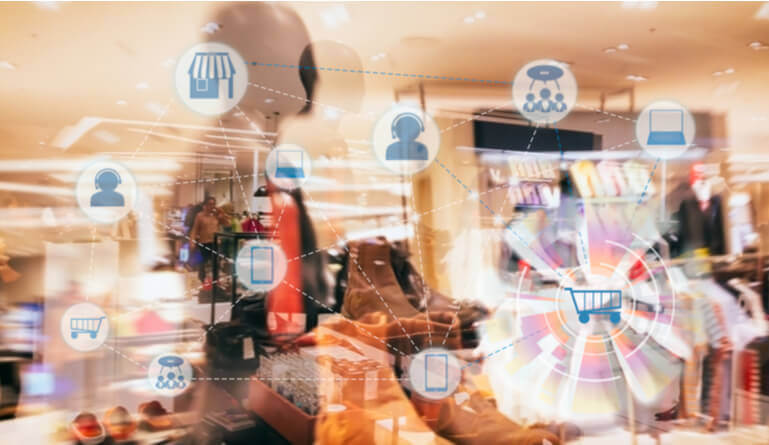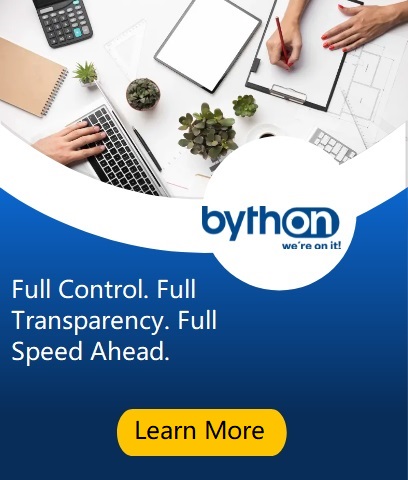Guest Contribution by Sherryn de Vos
Technology has led to significant changes in the retail industry over the past decade. While the industry is still growing, with the global market projected to hit 30 trillion U.S. dollars by 2023, this doesn’t mean things will remain the same.
New and upcoming technologies will continue to have an impact on how the industry operates and how businesses keep up with the increasing competition.
With unlimited options to choose from, both online and offline, consumers prioritize convenience. Additionally, customers expect fast service. To keep up with growing demand and changing trends, retail businesses need to familiarize themselves with any developments to stay on top of their game.
One such area that has experienced advancements in the usage of software in the retail industry, as the demands of the digital consumer grow, so does the need to meet these demands. Retail businesses can employ the use of specialized business software that can help optimize the business and scale it to new heights.
ERP Software
Enterprise resource planning, or ERP, software, is a convenient software your business can take advantage of. In layman terms, ERP software integrates the different functions of your business, such as customer relationship management (CRM) and human resources, into a single system that streamlines information and processes across the entire company.
ERP substantially reduces the barriers between the different functions of your retail business and helps the company perform more efficiently overall since the implementation of ERP software could potentially reduce administration costs by 22 percent and operational costs by 23 percent.
Data obtained from ERP can be used to make more informed business decisions. Moreover, it allows collaboration between the different departments of your retail business, leading to higher productivity for everyone involved.
Due to the versatility ERP software offers, an increasing number of businesses are jumping on the bandwagon and using ERP software. In fact, the global ERP market accumulates $25 billion each year, with a 10 to 20 percent growth every year.
Inventory Management Software
Regardless of how large or small your business is, every business demands the use of inventory management software, today. Inventory is a substantial aspect of every business and monitoring what goes out and what comes in is a vital component that needs to be monitored regularly.
Approximately 43 percent of small businesses don’t use inventory management software and potentially miss out on minimized costs and the automation of manual tasks.
Inventory management software helps you track stock, manage raw materials, forecast demand and accumulate purchase records, amongst a multitude of benefits. Many industries, including food, electronics, clothing, and consumer goods industries, use inventory management software.
The clothing industry, for instance, dramatically benefits from apparel industry management by managing costs, materials, and suppliers for increased profitability and accuracy.
CRM Software
Customer relationship management (CRM) software helps retail businesses build stronger relationships with existing and potential customers, both.
Additionally, it increases sales and customer retention by accumulating customers’ information in one place, thereby leading to more productive conversations with prospects.
Today, an increasing number of businesses are realizing the benefits of CRM since 91 percent of companies in the United States, with more than ten employees use CRM. CRM can be integrated with other software, such as payment processing and marketing automation, to give businesses an overall view.
Additionally, CRM can be used by the sales, marketing, and customer service departments of your business to help streamline processes, optimize sales performance, and improve customer interactions.
eCommerce is growing rapidly and is showing no signs of slowing down. By 2040, approximately 95 percent of purchases are expected to be through eCommerce. Hence, it’s more important than ever for your retail business to sell products online, which can easily be done with the help of eCommerce software.
eCommerce software usually comes with easy-to-use website builders that help you create an online store and make your products available to anyone, anywhere across the globe.
It’s also cost-effective since, instead of renting a location to run your business, all you need to do is pay a monthly fee to keep your business up and running.
Loyalty Program Software
An efficient loyalty program software encourages shoppers to keep buying from your retail business by offering them rewards and incentives in return. Loyalty programs improve customer retention and record relevant customer data for companies, helping them design better promotions and prices.
Customer retention could potentially result in long-term benefits for the business since 77 percent of customers have maintained loyal relationships with their preferred companies for ten or more years. Additionally, loyal customers recommend positive experiences with brands and products to their friends and families.
Retail businesses must distinguish themselves and retain customers, and loyalty programs are an excellent way to do that. In fact, 87 percent of shoppers want brands to have loyalty programs. This desire for loyalty programs could be because loyalty programs improve communication with customers by informing them of new products, services, and promotions instantly.
Conclusion
There is a wide range of software that retail businesses can take advantage of to optimize their businesses. With software that can be tailored to your business’s size and the industry you operate in, there is various software you can explore to determine what suits your business’s needs and what yields the best results.
***
Sherryn de Vos is living in the beautiful city of Cape Town. She worked with a startup brand that launched in South Africa called GoBeauty where she was assisted with content generation, as well as conceptualized events focused on women’s health, entrepreneurship, careers, and tech to run alongside the brand. She has extensive experience in writing and uses a lot of her practical experience to create useful content in the business, finance and marketing world.





